Where is the EU going on tech and competition policy? – TechCrunch - 29 minutes read
Huge technology policy questions are looming for whoever takes the top jobs at the European Union in the coming months. Decisions that could radically reshape tech business models, reconfigure the competitive landscape and change the relationship between Internet users and the content and services they consume.
In short, the entire future of the tech industry — and potentially not just in Europe but worldwide — is at stake.
The incoming European Commission will be faced with a lengthy list of pressing questions. How will they reboot competition law for the digital era? Should they rush in swinging a break-up hammer at monopolistic tech giants or take a scalpel to the competition-crushing problem of networked dominance by slicing up their data flows?
They will have to defend fundamental rights that call for privacy by design and data minimization against AI’s rapacious demand for data and the predictive powers of pattern-spotting algorithms.
They will have to evaluate how to make sure platforms play fair — and ensure that the initial embrace of sellers or service providers doesn’t evolve into crushing abuse. They will have to fashion rules that can wrap around digital giants, rather than getting bent out of shape by ‘winner takes all’ business models.
The power of tech giants to influence entire nations is now writ large in EU domestic politics. Europe knows it needs to hammer out an agreement on reforming digital taxation, with rising citizen anger over tax inequalities. The question is how to do it when certain states with low corporate tax rates have been colonised by tech giants which definitely don’t want tax reform to happen.
There’s also the tricky business of arbitrating between Europe’s traditional creative industries and the predominantly US sharing platforms that have gotten fat off of the back of others’ content — a battle so fraught it’s already yielded an EU copyright reform as polarising as Brexit.
How, too, to level the playing field between Internet giants and traditional telcos?
That requires winning agreement on an update to ePrivacy rules that’s been stalled for months. Because, again, new rules are urgently needed — to wrap around digital comms and address digital marketing’s weed-like sprawl, an outgrowth that’s spawned an entire shadowy industry of trackers, data brokers and people profilers which can be linked to many a data scandal and has driven EU consumers into the arms of ad blockers. How to find a way through all the competing interests to bring order to the unregulated mess that is modern adtech?
Then there’s hate speech and online disinformation. What’s to be done to shrink the democratic risks of political manipulation without trampling freedom of expression? And how can Europe best equip its citizens for the next waves of deepfaked information warfare while also getting platforms to accountably clean up their act?
Europe needs to shape a strategy to support AI too. It wants to do this in a way that reflects and bakes in European values. But how to ensure ethical guardrails to make AI development sensitive and “human-centric” don’t just end up kneecapping homegrown technologists versus whatever’s coming out of China?
Speaking of China, then of course there’s 5G. The Commission has to chart a delicate course between member states’ national security priorities and the fragmentation threat to its flagship digital single market policy if EU nations respond differently to Huawei. The whole project risks collapsing into mutual mistrust — which would reverse the intended gains to Europe’s digital economy.
On the legal front, an ongoing clash of priorities between US surveillance practices and EU fundamental rights also looks like trouble brewing.
A flagship EU-US data transfer mechanism launched by the Commission in 2016 is now facing serious legal questions. Does the next Commission have with a plan B to keep critical business data flowing for the thousands of companies signed up to its Privacy Shield framework if it gets struck down by a judge’s pen?
This is not a theoretical threat; the predecessor arrangement that had stood for fifteen years was invalidated in 2015, after a legal challenge which drew on NSA whistleblower Edward Snowden’s revelations of US mass surveillance programs. Trump’s ‘America First’ policy agenda clearly risks exacerbating this clash.
The US president is also of course continuing to rain down trade uncertainties that are rocking the stability of East-West technology supply chains. How should Europe respond to the wreaking ball potential of Trump’s trade war? What support can it offer its own tech industry to manage a level of uncertainty that makes brexit look like a picnic?
And, as the Internet splinters into increasingly localized flavors, how will Europe prepare and position itself?
The techie to-do list crossing the next Commission’s desk is packed with highly charged, pressing and politically fraught problems.
Over the past year the EU has dined out on making a name for itself on the world stage with a shiny new set of digital privacy rules — aka, the General Data Protection Regulation (GDPR) — at a time when US policymakers are just waking up to the rude incursions of homegrown data-mining tech giants. But attention now needs to be paid to ensuring it actually delivers what was promised or else the global spotlight will be pointing at policy failure.
So yet another task for the next Commission will be applying the right level of strategic pressure to make sure the regulation’s wheels are turning.
National data protection agencies are where GDPR enforcement will fly or fail. The highest profile cases that will really test their mettle are of course attached to tech giants — including Facebook and Google. The latter’s handling of personal data for behavioral advertising is now under scrutiny in Ireland.
The Irish DPC also has more than ten open investigations into Facebook-owned businesses, covering a range of issues — from probes of specific security breaches to whether it is lawfully gaining consent to process the data of users of its platform being as it offers no opt-out from behavioural ads.
If Ireland fails to defend European values and rights against the commercial incursions of some of the world’s most powerful companies it would represent EU policy failure at the highest level.
It could also invite revolt from less conflicted parts of Europe. A dispute resolution mechanism is baked into GDPR, which allows the European Data Protection Board to step in if disagreement between DPAs om cross-border cases threatens to derail decisions. While this does look intended as a tool of last resort, the market denting power of tech giants is piling the pressure on — with record numbers of such complaints awaiting judgement.
Either way, battles are brewing. And the biggest fight looks to be for the future shape of the commercial Internet.
Ad-funded business models that have been allowed to grow like weeds are under regulatory scrutiny like never before — thanks, in large part, to European interventions. So too are the tech giants that have profited so handsomely by being able to use data how they like.
At the same time a new generation of privacy-conscious startups is thinking differently and doing what it can to gain footholds in markets where platform giants suck most of the oxygen out of the room.
Strong decisions by the next Commission to defend European rights and reboot digital markets with fairness and competition at the center have the potential to transform the digital economy so that there are far more winners, not just a few taking all.
The question is whether Europe’s leaders will rise to the challenge.
Who’s in the running to be the next EC president?
The center right’s preferred candidate — and therefore the technical favorite for the EU’s top job — is German conservative, Manfred Weber.
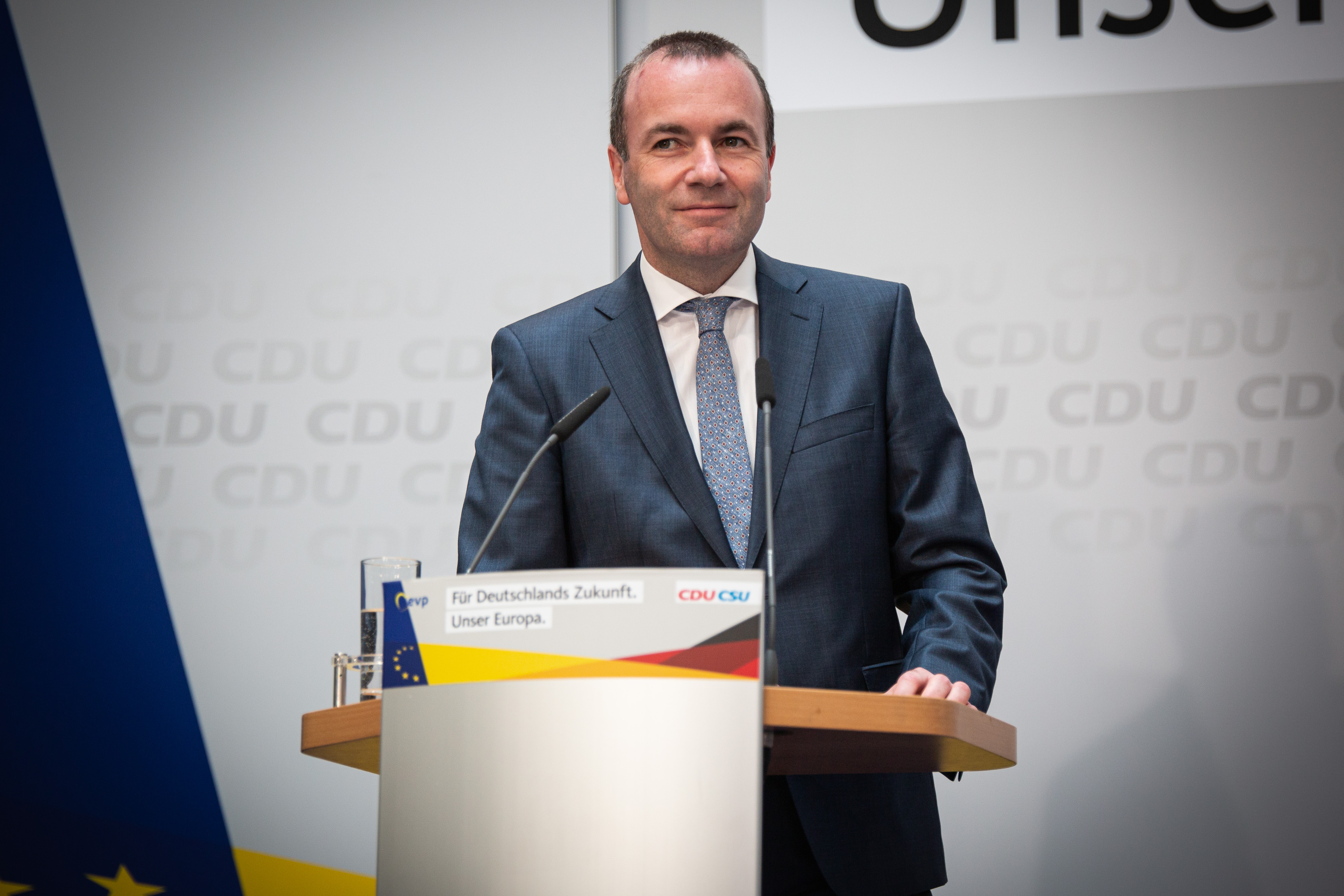
Manfred Weber. Photo by David Speier/NurPhoto via Getty Images
In Commission president candidate debates he has billed himself as offering “stability” for the European project, via a “pro-compromise approach” — and talked about strengthening “the innovation field” as the key to building a stronger EU economy, saying he also wants to upgrade the EU-US trade relationship to bolster Europe’s prospects.
But Weber has a lack of executive experience and suffers from something of a charisma vacuum at a time when a big personality might well be required to sit in the chair and ‘sell’ the next Commission to a more fragmented European Parliament.
The kaleidoscope twist of European parliamentary politics may also have undermined Weber’s frontrunner chances by allowing critics to argue against him on the grounds that his party, the EPP, failed to grow its share of the votes. So it may be that another European People’s Party candidate comes through in the end. One who offers a finer-grained political compromise.
The EU’s chief Brexit negotiator, Michel Barnier, looks to have potential — and is being tipped by some of the current political chatter — having played a high profile role in recent European politics, calmly handling the chaotic mess produced by the UK’s 2016 referendum vote to leave the EU.
More importantly, perhaps, Barnier is French. One of the EU’s powerful national leaders — France’s president, Emmanuel Macron — has been seeking to assert authority over the parliament by indicating he won’t be bound by a system of preferred candidates put forward by its political blocs.
That’s bad news for Weber, but it could lift Barnier out of the wider field if Macron prevails in stamping France’s mark on the Commission presidency.
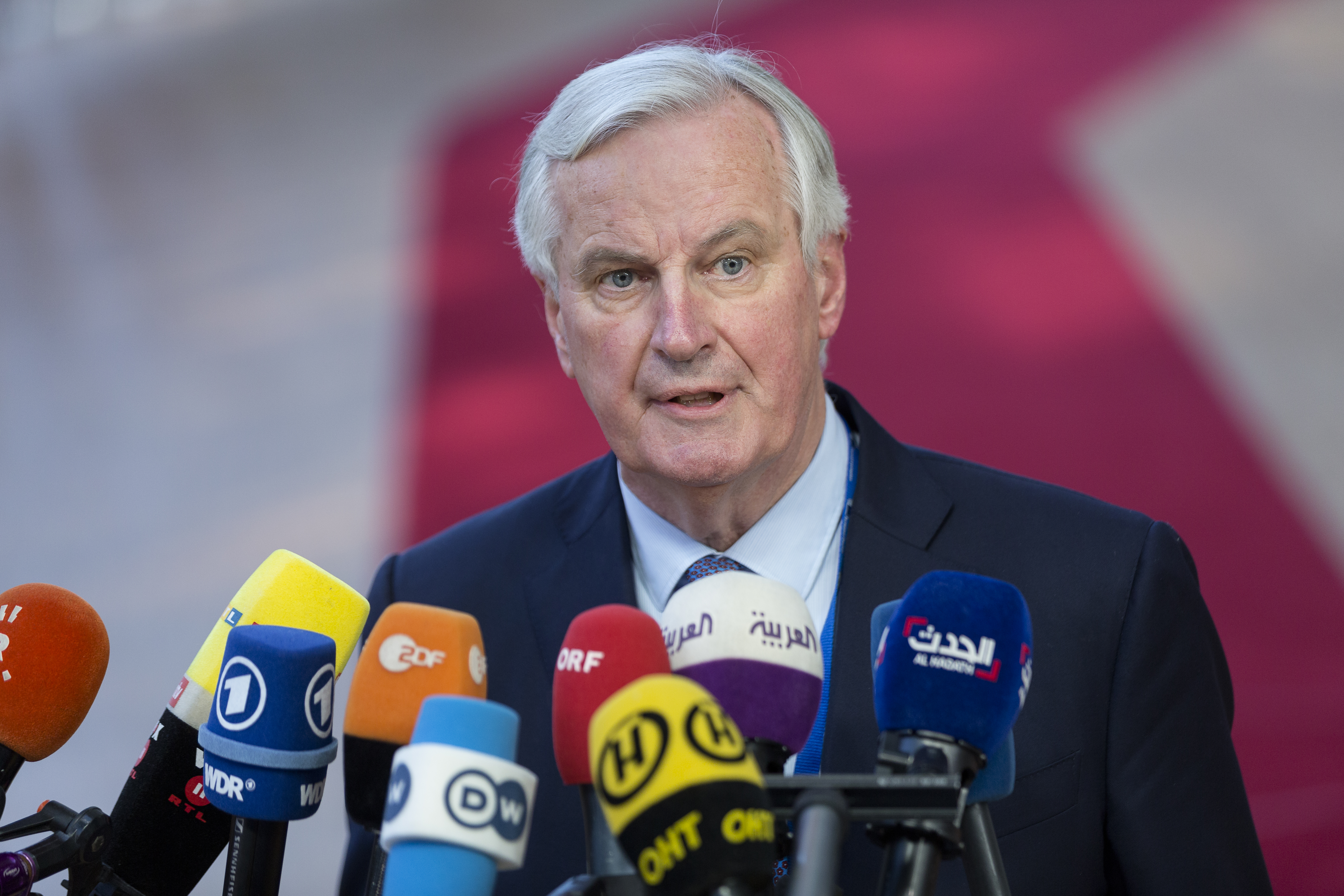
Michel Barnier. Photo by Thierry Monasse/Getty Images
Although plenty of other establishment names are still being bandied around for the top job — including chair and MD of the International Monetary Fund, Christine Lagarde (also French); and Dutch PM, Mark Rutte, to name just two.
It’s certainly hard to imagine a more symbolically safe pair of hands for the EU to choose for its top job right now than Barnier: The man tasked with holding the EU together in the face of the threat posed by Brexit.
Brexit risks not just the UK’s stability but could very well scatter wider seeds of destruction if it erodes and destroys the cohesion required to keep the European project together. So Barnier’s proven ability to glue the 27 remaining Member States on a common negotiating path could be seen by EU leaders as having strategic appeal.
What his presidency might mean for wider EU policy is less clear, though, given his focus on Brexit has kept him out of the fray — and away from participating in public debates with some of the proposed candidates.
The center left’s pick for president, Dutch politician Frans Timmermans, would need to prevail against the dominant EPP bloc to succeed in getting the nomination. Which likely means persuading a strengthened liberal contingent to throw its backing behind a ‘progressive alliance’ of socialists and liberals.
While possible, it looks to be a challenge.

Frans Timmermans. Photo by Pier Marco Tacca/Getty Images
Timmermans has made a public pitch as a change candidate, saying Europe needs more social justice and sustainable social policies — including putting taxing tech giants front and center of his talking points, and dubbing it “unacceptable” that some companies have gotten so big they can “arm twist” entire Member States to vanquish taxes.
Climate policy is another stated focus. He has called for stepped up efforts to enable a European-wide viable carbon tax plus quicker transformation of the energy sector as well as suggesting new ideas in agriculture — such as switching to more sustainable food production.
He has also said he wants to see a corporate tax rate floor across the EU, and called for every state to implement a minimum wage. An articulate and at times impassioned speaker, Timmermans posses at least some of the charisma Weber lacks — even while he faces plenty of political hurdles.
An outside bet — who has betted against big tech…
For those who like an outside bet, the more fragmented European Parliament vote may have buoyed the chances of liberal candidate for Commission president, Margrethe Vestager — who could emerge as a compromise alternative since the liberals grew their presence in parliament (and her own party in Denmark did well in national elections).

Margrethe Vestager. Photo by Thierry Monasse/Getty Images
Although she is just one of a full slate of candidates fielded by the liberals, which also includes another prominent EU politician, MEP Guy Verhofstadt — who has also made his ire over big tech’s rights incursions felt when he heckled the Facebook founder last year, when Zuckerberg addressed some MEPs and failed to answer most of their questions.
Few can compete with Vestager’s profile on that front though.
The EC’s current competition commissioner has gained fame on both sides of the Atlantic for going after big tech, including issuing three high profile antitrust decisions against Google, such as a $5 billion fine for Android as well as action on EU illegal state aid that saw the Commission order Apple to pay $15 billion in back taxes to the Irish state, covering a decade of unpaid taxes. On her order, Amazon also got hit with a large illegal tax benefits bill, and may yet face antitrust action.
As a result of holding a key office and how forcefully she has spent her time as antitrust chief, she remains one of the most high-profile European commissioners.
Asked about what she would offer as Commission president she has said “you have to be forceful to serve people well.” Naturally, she is pro-regulation — a sentiment that chimes well with rising public concern over unfettered and even feckless Internet giants. But while demonstrably forceful, she is also thoughtful and methodical, and can’t be accused of jumping on the bandwagon of populist positions.
She’s also shown her steel in office, issuing competition decisions that have angered powerful heads of EU states — which might therefore have been politically disadvantageous to her prospects of further advancement in the Commission.
Towards the end of her time as commissioner, she instigated a review of competition policy to respond to the challenges posed by digital markets, signaling a reform agenda. She has also talked publicly about regulating data flows as a more intelligent route to regulate big tech versus swinging the hammer to break companies up.
A Commission headed by Vestager would surely have a strong appetite for stamping its mark on digital regulation. At very least it would drive discussion, even if winning consensus on pan-EU digital reforms may be more difficult to achieve (especially on a highly divisive issue like tax reform).
In public debates of Commission presidency candidates, Vestager has said that increasing diversity and managing climate change would be priorities if she took the top job, emphasizing too the need for an inclusive transition to a sustainable economy.
Given her high personal profile, it seems at least reasonable that should she miss out on the top job she will end up with another major post, such as vice president. It would also, of course, signal progressive change if European institutions were to appoint a woman to one of the top jobs for the very first time.
It’s also not inconceivable that she could be reappointed as competition commissioner, given how she has owned the office.
Either way, Vestager’s influence on competition policy looks very unlikely to fade — not least because similar ideas are catching fire across the Atlantic.
At this stage, though, all is still in play where the Commission presidency is concerned.
More clarity may emerge after the next meeting of EU leaders, on June 20 and 21, when the Council will convene to discuss nominations — and adopt a first draft of their strategic agenda for the next five years.
What’s on the EU Council’s strategic agenda?
An outline of discussion topics for this agenda last month included, among myriad talking points, Europe’s migration challenge; tackling online disinformation, bolstering cybersecurity and addressing hybrid security threats; deepening and strengthening the single market and developing an industrial strategy, as well as investing in skills and education, promoting innovation and research.
Ensuring fair competition was also on the list.
A section on “building a greener, fairer and more inclusive future” suggested accelerating the energy transition and investing in “mobility of the future” among its listed points.
While a section entitled “embracing the digital transition” cited developing AI, promoting “access, sharing and use of data,” and ensuring connectivity as key talking points.
Elsewhere the document talked about defending European people’s rights and freedoms, and indeed projecting European values on the rest of the world. But with so many power games still to play out, the shape of Europe’s future tech and competition policy remains just that: A draft, with priorities hard to predict.
“It’s most unlikely that there’s going to be any reversal of major policies,” suggests Dr. Alistair Jones, an expert on EU political policy at De Montfort University. “What we are likely to see — and this is pure conjecture — is assuming Brexit goes ahead (and that’s still an if) then what we’ll probably see is a Commission being a little bit more tentative on the integration process and wanting to go forward more gradually on integration to keep everyone on board.
“So things like the digital market will proceed, slowly and carefully. I don’t see a huge lunge forward in greater integration on any aspects. I think it’s going to be very tentative, very much small steps.”
Online disinformation is an issue where the EU does have serious concerns. The Commission has been paying close attention to how platforms are responding to increased pressure, via a (for now) voluntary code of practice — setting up a monthly monitoring requirement for them to deliver progress reports, and issuing sharp rebukes that progress hasn’t been good enough.
But a pan-Europe regulatory response to online muck spreading is complicated by whether it’s an EU or national competence.
“The problem is it probably lies with the national governments and they are loath to want to give greater responsibility to the EU in this area because they have their own ways of doing things,” says Jones.
The Germans, for example, haven’t been shy about passing a law to punitively punish platforms if they fail to swiftly remove hate speech, while the UK remains focused on devising a framework to control a broader range of online harms.
Where online content rules are concerned, Europe’s cultural differences suggest that this sort of policy patchwork will remain the norm.
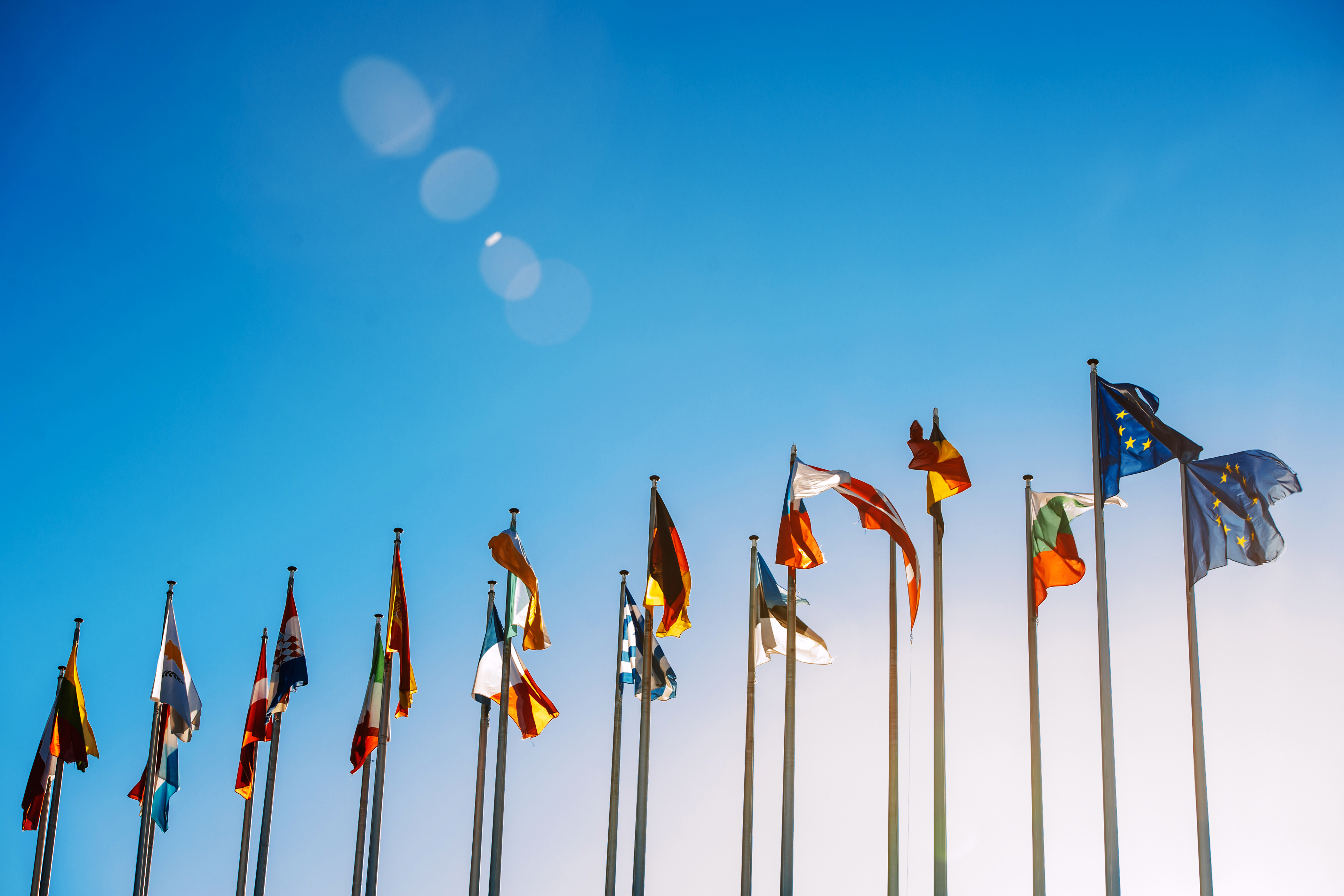
Image via Getty Images / AdrianHancu
Similarly, Jones believes core decisions on regulating 5G will remain at a Member State level — with the Commission likely only moving to set a future floor for trans-national EU minimum standards, rather than seeking to impose hefty security restrictions on procurement decisions.
“As it moves forward, I can see the Commission — as it’s done in the past — taking over a broad brush big picture regulatory role,” he says. “So who can be involved in the delivery of 5G, which businesses are involved, things like that. I can see as it is rolled out the Commission and the EU collectively wanting a degree of consistency, and that links to single market rules, it links to competition rules, it links to commercial policy rules. Some of that’s already in place but at the same time there may be a need for greater policing that further down the line.”
One issue that does generally cut across the political spectrum is digital taxation, though achieving agreement on that front may be hampered by a political requirement for the EU to be more sensitive to concerns about increased integration — and not be seen blindly pushing on the accelerator.
Again, says Jones, Brexit complicates matters. He suggests a more broad-brush approach may win out in the near term, such as the Commission looking at the operation of the entire single market — “and how that can be done more effectively and efficiently” — rather than trying to tackle head-on national resistance if the EU pushes to get input on Member States’ tax systems.
“It’s something that may bubble along just below the surface,” he posits of digital tax reform. “Maybe in five years times, after the next elections, [there could be a] big package to possibly change the whole taxation system of the EU. And it may be that it gives the EU some input into national taxation policies but that is going to be resisted by some countries.”
Some Member States have voiced loud concern about digital tax inequality. Including France and the UK, which are pursuing their own flavors of reform. Though without a pan-EU approach there’s no real chance of addressing the problem.
Getting political agreement on that will be difficult, with smaller states having lucratively leveraged a low tax economy to pull in the tech giants. So the Commission may remain caught in the middle.
“We often assume that the Commission sets the policies. The Commission don’t. The Commission tries to mold the agenda but it’s up to the Council’s ministers and also the European Parliament to take that forward,” says Jones. “So if we have a Commission that’s willing to say — ‘hey, digital economy, the EU needs to have greater involvement in all of this’. The national governments have got to buy in. And if they don’t buy in it doesn’t matter how good the commissioner is, it doesn’t matter how farseeing they are, they’re not going to get anywhere. So there’s got to be this ability to get buy-in from the Member States.”
That said, individual commissioners can be key to driving a particular reform agenda. So the personalities and expertise involved can make a big difference — if it helps them win the support of member states.
“There probably is going to be more appetite for big tech regulation but the problem they’ve got at the Commission is that at times, collectively, their head is stuck in the sand and they are loath to go forward on a number of issues,” says Jones. “It may be up to individual commissioners who have got that individual get up and go, that individual vigor, that knowledge of the area they are in charge of — it may be the individual commissioners who may actually drive things forward.”
“It may be there’s a commissioner in the digital economy who’s going to grow into the role, if they’re not already there,” he adds. “But what they will need is the support of the individual member states.”

Image via Getty Images / KatarzynaBialasiewicz
After the Commission president, the competition commissioner role stands out as a critical appointment, given its high degree of autonomy and power. Whoever lands the brief will certainly be one to watch, not least for how they respond to growing political appetite over the Atlantic to crack the back of tech giants’ platform power.
A future date to look out for on that front is when the nominee for the EU antitrust brief gets questioned by the European Parliament — both to see how they respond but also what kind of questions they face. That will offer a flavor of the new parliament’s priorities for regulating competition.
A parliament signalling it wants more action to rein in big tech could act as fuel for the next commissioner, says Jones.
The EU’s next antitrust chief will also have on their desk the review Vestager instigated of digital markets — so it will be up to them to make a call on how to take that work forward. A decisive commissioner could have a major impact on digital markets and business models. So it’s a critical appointment.
But again we’re still a long way off knowing who the person will be. Not least because individual commissioner appointments can depend upon how big a personality the Commission president is.
“If you’ve got a big personality who can drive things through with the support of the European Parliament they can get the national nominees into the places that they want,” says Jones.
“This is the problem that the president has — they do not know who the individual nominees are going to be from which Member States. So until they know who the nominees are from which Member State and then what portfolios they may be appropriate for — what portfolios they want to give them — it’s all up in the air.”
How is the next Commission president decided?
Multiple candidates remain in the running to take over from Jean-Claude Juncker as Commission president come November 1. Though even that timeline is not 100% certain. If, for example, MEPs take a dislike to a Council pick for president they can reject the whole Commission, delaying the entire process.
The process for deciding the next Commission president involves a nomination, by a qualified majority, from the European Council that’s required to factor in the result of the most recent European elections.
Members of the European Parliament (MEPs) then vote on the choice — with an absolute majority required for the Council’s nomination to prevail.
While the Commission’s top job is influential, as regards shaping pan-EU policy — with the president responsible for setting political direction and chairing their cabinet of commissioners atop the various policy areas — the office shouldn’t be thought of as the equivalent of the president of the United States. But is a key strategic role. Collectively, the Commission executes on a pan-EU legislative program. It’s responsible for drafting the budget and is the only EU institution that can propose legislation.
The European Council is the power behind this throne, feeding in whatever policy priorities can be agreed by a roomful of heads of government/state of the EU’s (currently) 28 members — in addition to playing kingmaker by nominating their choice for Commission president.
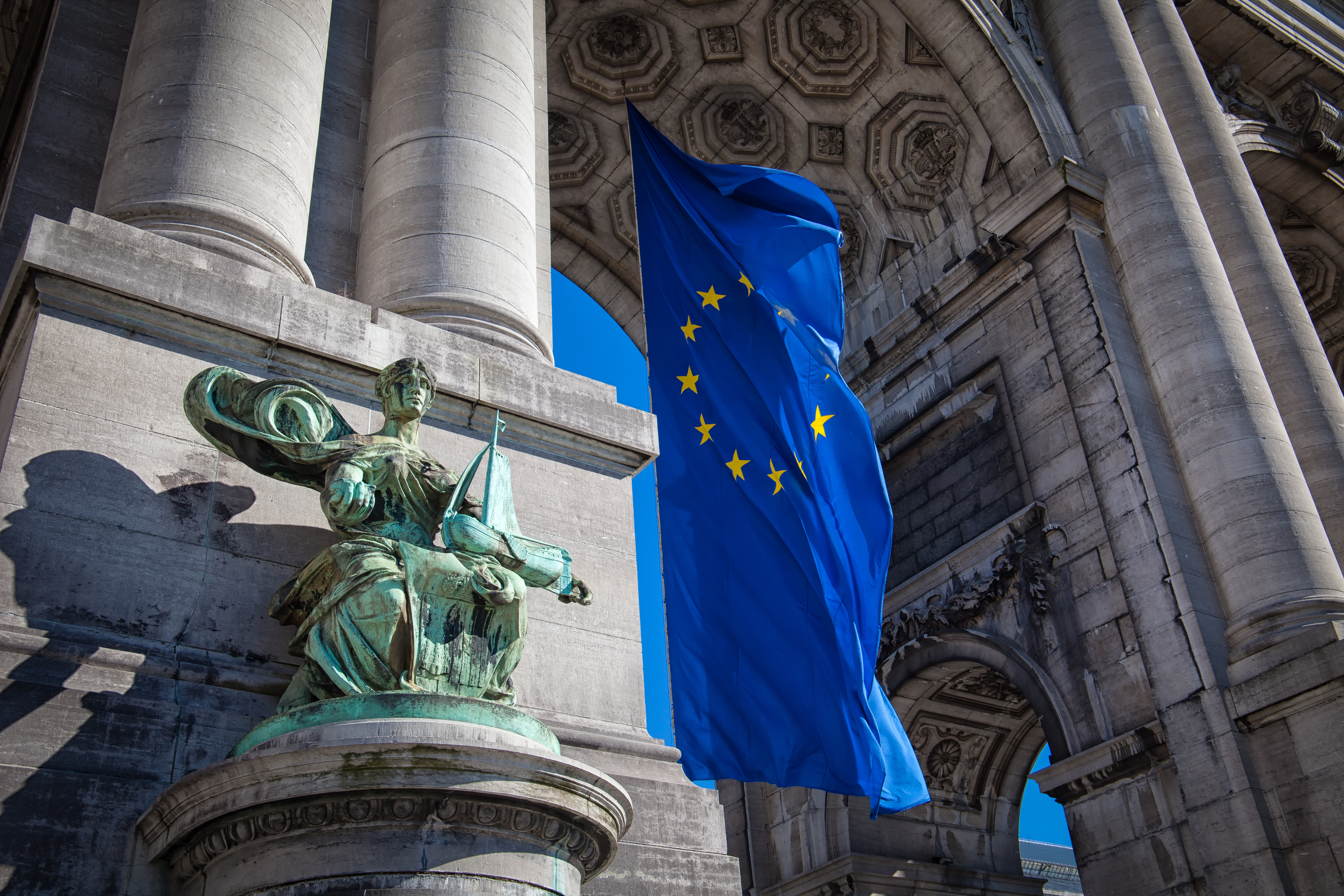
Image via Getty Images / Dado Daniela
There is also a president of the European Council, who works to seek consensus between Member States. This position is set to change shortly too, via election by Council members, albeit for an initial term that’s half as long as the Commission president.
Nominations for the various European commissioners typically involve large amounts of horse-trading and power playing for portfolios between the Member States.
The aim is for the Commission to contain representation across the bloc, factoring in regional differences in politics, nationality, north vs south, east vs west, diversity and so on. But it’s a political compromise, never a flawless mirror.
In practice, the selections of Commission nominees can be a surprising process in which little known figures can suddenly find themselves with the right combination of strategy, nationality and diplomacy to unlock the right support.
With so many balancing and compromise factors in play, the make-up of the next Commission is always complex and hard to predict, and arguably more so this time around, given wider shifts in the European political landscape — including ongoing ructions caused by the UK’s vote for Brexit — adding extra layers to the usual palimpsest.
A more fragmented European politics
Elections for the parliament were held last month and the vote returned a more fragmented hemicycle — weakening the traditional center-right and center-left blocs that have dominated for 40 years. Although they still remain the major political forces it’s the liberals, greens and nationalists that gained ground.
A more fragmented parliament suggests reaching consensus on both the shape of the next Commission and what legislation it will go on to propose could prove more difficult unless new political alliances can be forged. At this stage, it’s not clear what the new European parliament voting blocs will be.
There remains a risk that EU legislative processes could be stalled if compromise can’t be reached across a differently stripped spectrum of divergent political positions.
“We don’t really know what the groups are going to be in the European Parliament,” says Jones. “Those groupings are fluid. So if you look for example at the Brexit Party going in with the Europe of Freedom and Direct Democracy — when Britain leaves, that whole grouping disintegrates. Because they’d only have six countries represented. They’d need seven.
“If that’s the case it may be that some of those party groups may look elsewhere… We simply don’t know. So how the actual structures of the smaller parties are going to be — that is up in the air. Until that is resolved, the whole establishment of the Commission beyond the presidency is up in the air as well.”
“Everything’s up in the air at the minute,” he adds, noting just one certainty: That the two major parties still dominate, despite their vote shrinking.
“If they have organized things so that there’s an agreement that whichever party has the most seats their nominee for the presidency for the Commission would go forward,” Jones suggests. “If they stick with that, then the starting point of establishing the Commission presidency means that the EPP will keep their person in place.”
The full phalanx of Commission president and commissioner appointments has also got to be approved by the European Parliament, en masse — with MEPs getting a vote to either accept or reject.
“So what you’ve got therefore is a huge haggling process. And this is why when people say there’s a fragmented European parliament we don’t know what’s going to happen — they’re absolutely right. Until the groups are actually sorted in the European Parliament then we’ll get a better idea of the power structures, and then we’ll get a better idea in relation to with the presidency having been sorted how the rest of it will flow through.
“It could be — could be — really problematic in trying to get a Commission membership through if the smaller groups in the European Parliament work together to try to block appointees they could cause problems.”
So, again, much hangs on who will be the next Commission president, and how persuasive they prove across a more fragmented political landscape. As noted earlier, Barnier’s negotiating glue may look like a handy special power. Although, as a personality, he’s hardly overflowing in the force of character department — famed only for having an unnerving stare.
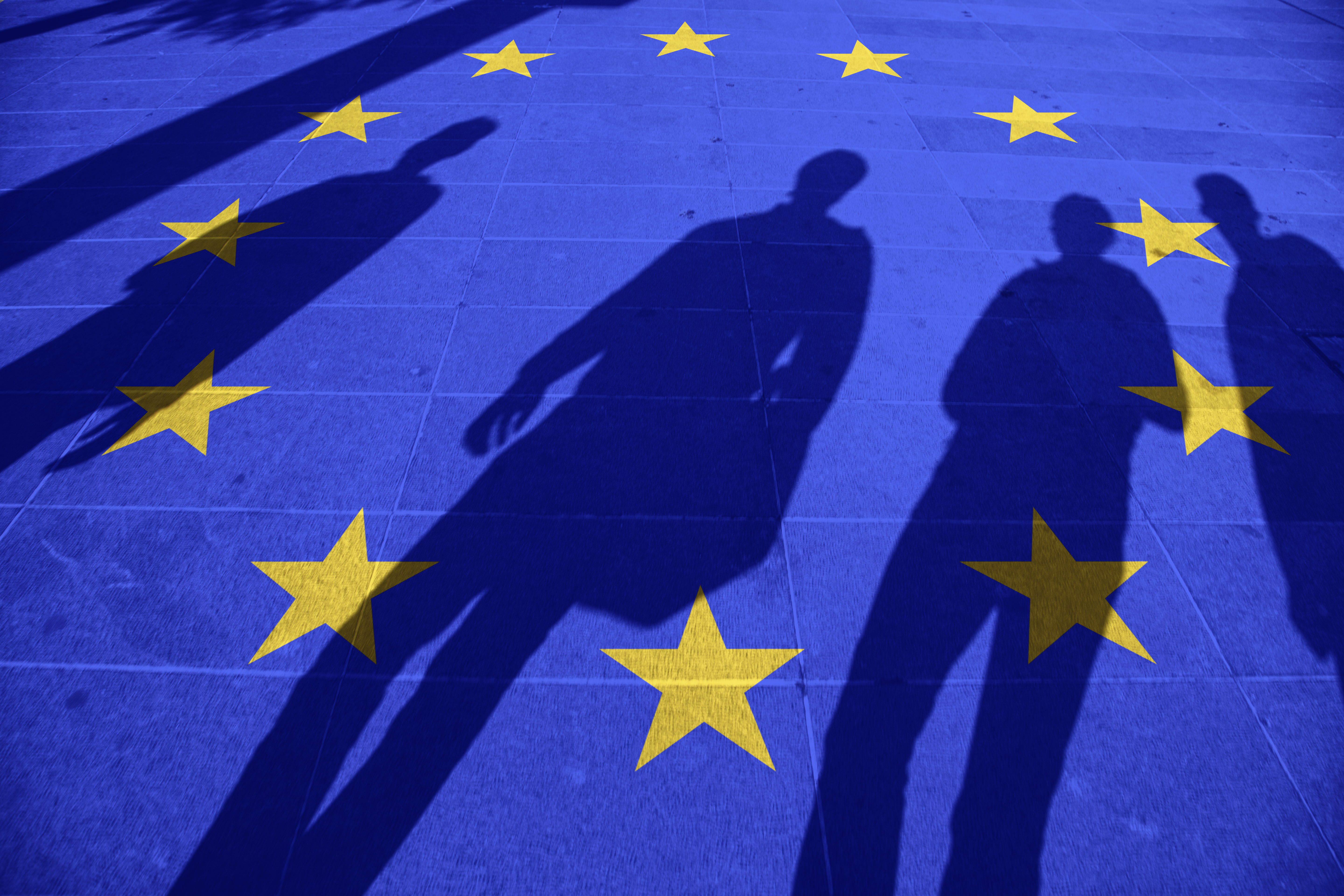
Image via Getty Images / robertiez
Jones takes the view that the policy agency of the next Commission isn’t likely to emerge until Brexit itself has happened — assuming, of course, that Brexit does actually go ahead. (And where Brexit is concerned there are still absolutely no guarantees at all.)
“When/if Britain leaves the entire power structure in the European Parliament could change. Because the Freedom and Direct Democracy Group could collapse with Brexit leaving that group [assuming the party follows the UKIP template and involves itself with the same group]. So everything is up in the air at the minute. That will get resolved, probably by if we’re lucky the middle of next month.
“Then you start on the commission appointments and it’s the summer — and some of the countries effectively shut down. So it may be that it’s September or possibly even early October that we’re going to see this entire process completed. That’s the nightmare scenario. So the EU basically flounders for the next three to four months.”
Meanwhile, if muscle-flexing Macron misses out on a French Commission presidency it’s conceivable he could push for the powerful antitrust portfolio as a consolation prize. Which perhaps lends some color to Facebook’s recent attempts to cozy up to the French government to work on ideas for Internet ‘co-regulation.’
Zuckerberg may be placing his own bets on the future shape of the Commission by seeking to make powerful French friends in the hopes of influencing pan-EU policy before the next commission has had chance to take shape.
But where EU politics is concerned, the phrase that’s been repeated ad nauseam of the Brexit negotiations applies here too in spades: ‘nothing is agreed until everything is agreed’.
This time around Europe’s political dial the risk of disagreement appears to be zooming alarmingly into view. So the real test of the European project will be whether it can weather disruption to its usual philosophy of onwards and upwards — its political push for ‘more Europe’ — when some of its people are voting for less.
If the EU can’t carry all its people along there will be little hope of driving any major policy agenda — which means key questions of technology and competition going unaddressed, generating legal uncertainty and compliance risk for business with knock-on economic effects.
Tech giants have the resources to manage political uncertainty — indeed, they’ve shown themselves adept at exploiting political vacuums and blindspots — so it will be startups and the next generation of entrepreneurs that get failed.
Consensus works until it doesn’t, as the UK’s Brexit schism illustrates. So there’s a clear cautionary tale for the EU powers that be — if they can but put their heads together and listen.
“The issue is going to be how the rest of the European countries work together. Because although [the UK is] a reluctant European, and we’re never very keen, one of the roles that we played was as a break on some of the more excessive integrationist ideas that might have arisen from the Commission that some of the other big countries such as France and Germany bought into,” says Jones when asked whether he thinks the European project can survive Brexit. “With that role going, assuming we leave, it does give the EU the opportunity for the EU to drive forward for greater integration — and it may be that we see the development of a two-speed Europe. If that happens the whole project will disintegrate. Of that I am convinced.”
“They need to be taking on the more reluctant members,” he adds. “So the Hungarys, the Polands, the Czech Republics… as well as the more integrationist countries, such as Belgium, such as Luxembourg, such as Germany and France. They’ve got to be taking everybody along together… Everybody’s been dragged along a bit reluctantly. They’re going to have to be a little bit more considerate if Brexit goes ahead because otherwise the project could disintegrate.”